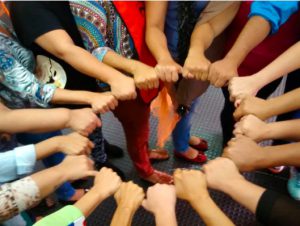
For one response to this question, see The Elders debate “should military action be taken against Islamic State?”
Readers are encouraged to comment below on this theme which refers to the following CPNN articles:
Cameroon: A radio station for the protection of the Waza biosphere reserve
Civil society in northeast Syria promotes women’s role to fight extremism
Morocco: Combating the radicalization of young people via the Internet
Burkina Faso: Struggle against radicalization: Imams and preachers strengthen their knowledge
Dakar: International Post-Forum Seminar on Peace and Security in Africa
Book review: A Moonless, Starless Sky by Alexis Okeowo
The League of Ulema, Preachers and Imams of the Sahel Countries: Communication to counter extremism
Egypt : Launch of the 27th session of the International Conference on Islamic Affairs
Lancement de la 27ème session de la conférence internationale des affaires islamiques
Benin encourages interfaith dialogue against Boko Haram
Speech of Sierra Leone Foreign Minister to the Organization of Islamic Cooperation
Nonviolent Peaceforce: Urgent Update from South Sudan
The Challenge: A Cultural Program to Reject Extremism and Violence
The Elders debate “should military action be taken against Islamic State?”
Algérie: Séminaire sur l’islam et le rejet de la violence les 12 et 13 août à Laghouat
Algeria: Seminar on Islam and rejection of violence on 12 and 13 August in Laghouat
The Global Movement Of Moderates: An Effective Counter To Islamic State? – Analysis
Search for Common Ground: Take Action to End Violence against Civilians
Mali: The struggle against terrorism: Towards the creation of a global network of Ulemas
Togo in the struggle against terrorism: The “Pacific Magazine” plays its part
Togo Lutte contre le terrorisme : Le « Magazine le Pacific » joue sa partition